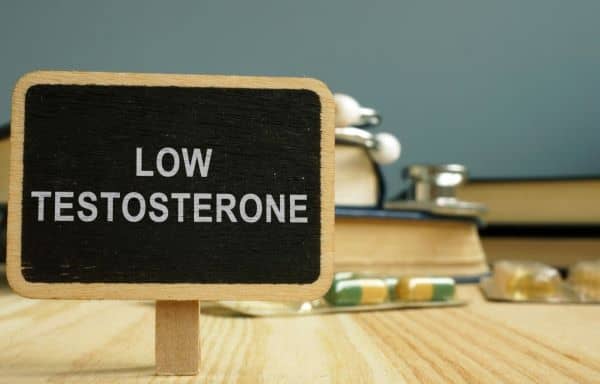In the vast corridors of a modern hospital, John, a 45-year-old executive, sat perplexed. Despite his rigorous gym routines and a balanced diet, he felt a decline in his energy, mood, and overall vitality. A series of tests revealed a surprising culprit: low testosterone levels.
While modern medicine offered him synthetic solutions, John’s quest for a natural remedy led him to the ancient doorsteps of Ayurveda.
This 5,000-year-old holistic healing system, with its roots in the Indian subcontinent, offers profound insights into hormonal imbalances, including those of testosterone.
As we delve deeper, we’ll uncover Ayurveda’s perspective on testosterone imbalance, exploring its causes and the holistic remedies it offers. Join us on this enlightening journey, where ancient wisdom meets modern challenges, offering hope and healing.
Ayurveda to Increase Testosterone: Remedies for Restoring the Balance
With its vast pharmacopeia of herbs, Ayurveda offers potent solutions for those grappling with testosterone imbalances.
One revered herb is Ashwagandha, often called the ‘Indian Ginseng.’ Known for its adaptogenic properties, Ashwagandha supports testosterone levels and combats stress, a common culprit behind hormonal disruptions.
Another gem from the Ayurvedic treasure trove is Shilajit, a resinous substance found in the Himalayas. Rich in minerals and fulvic acid, Shilajit is believed to enhance testosterone production and overall vitality.
Gokshura, or Tribulus Terrestris, is another herb celebrated for supporting male reproductive health and optimizing testosterone levels.
Dietary Recommendations for Testosterone Harmony
Food, in Ayurveda, is considered medicine. To bolster testosterone, Ayurveda recommends incorporating foods rich in zinc, vitamin D, and healthy fats.
Ghee, a clarified butter used extensively in Ayurvedic cuisine, is a source of healthy fats and aids in absorbing fat-soluble vitamins.
Sesame, pumpkin, and almonds, all Ayurvedic diet staples, are rich in zinc, a mineral crucial for testosterone production. Ensuring adequate sun exposure or consuming foods rich in vitamin D, like fatty fish or fortified foods, can also play a pivotal role in maintaining healthy testosterone levels.
Lifestyle Practices for Hormonal Balance
Beyond diet and herbs, Ayurveda emphasizes daily routines and practices to maintain hormonal harmony.
Specific yoga poses, such as the Cobra Pose (Bhujangasana) or the Bow Pose (Dhanurasana), are believed to stimulate the reproductive organs, potentially supporting testosterone production.
Meditation and Pranayama (breathing exercises) can be instrumental in managing stress, a known factor affecting testosterone levels. Ensuring adequate sleep, often termed the ‘natural testosterone booster,’ is also a cornerstone of Ayurvedic recommendations.
Panchakarma: The Ayurvedic Detox for Testosterone Health
Panchakarma, a series of detoxifying and rejuvenating therapies, holds a special place in Ayurveda’s approach to testosterone health.
By eliminating toxins (Ama) that can hinder hormonal production and balance, Panchakarma lays the groundwork for optimal testosterone levels. Specific therapies, like Basti (medicated enema), can directly target the reproductive system, offering cleansing and nourishing effects.
It’s crucial, however, to undergo Panchakarma under the guidance of a skilled Ayurvedic practitioner to ensure its efficacy and safety.

Ayurvedic Causes of Testosterone Imbalance
In the heart of Ayurveda lies the concept of the three doshas: Vata, Pitta, and Kapha. These elemental energies govern various physiological and psychological functions within the body. An imbalance in any of these doshas can influence testosterone levels.
For instance, an aggravated Vata, often resulting from excessive stress or irregular routines, can decrease testosterone production. A heightened Pitta, possibly due to excessive heat or inflammation in the body, might disrupt hormonal balance.
Lastly, an increased Kapha, often seen with sedentary lifestyles or overconsumption of heavy foods, can lead to lowered metabolic functions, indirectly affecting testosterone synthesis.
Diet, Lifestyle, and Their Impact on Testosterone
Ayurveda firmly believes that our daily choices, from the foods we eat to the lifestyle we lead, play a pivotal role in our internal harmony.
Consuming processed foods laden with preservatives and chemicals can introduce toxins into the body, hampering testosterone production. Overindulgence in alcohol or certain foods can create an internal environment of Ama (toxins), further disrupting hormonal balance.
Additionally, a sedentary lifestyle without physical activity can stagnate the body’s energies, diminishing testosterone levels.
The Role of Ama in Testosterone Disruption
Ama, a unique concept in Ayurveda, refers to the accumulation of metabolic waste and toxins in the body. When our digestive fire, or Agni, is weakened, it leads to incomplete digestion.
This undigested food transforms into Ama, which can circulate and lodge in various bodily channels. When Ama accumulates in the channels that govern hormonal production, it can directly impact the synthesis and regulation of testosterone.
This toxic buildup hinders testosterone production and can affect the body’s responsiveness to the hormone.
External Factors and Hormonal Harmony
While internal factors play a significant role, Ayurveda also acknowledges the influence of external factors on testosterone balance. Environmental pollutants, exposure to harmful chemicals, and electromagnetic radiation can disrupt the body’s hormonal rhythms.
Chronic stress, stemming from professional pressures or personal challenges, can elevate cortisol levels, a hormone that affects testosterone inversely.
Ayurveda emphasizes the importance of living in harmony with nature, advocating for clean environments, and managing external stressors to ensure optimal testosterone health.
Modern Validation of Ayurvedic Practices
The ancient scrolls of Ayurveda, penned down by sages thousands of years ago, might seem distant from the sterile labs of today’s research institutions.
Yet, when we delve deeper, we find a fascinating convergence. Modern scientific studies have begun to validate many of Ayurveda’s claims, especially concerning testosterone health.
The adaptogenic properties of Ashwagandha, long celebrated in Ayurveda for enhancing vitality, have been confirmed by contemporary research to positively influence testosterone levels in stressed individuals.
Herbal Efficacy in the Spotlight
Modern pharmacology has shown a growing interest in the herbs prescribed by Ayurveda for testosterone balance.
Shilajit, the resinous substance revered in Ayurveda, has been studied for its rich mineral content and potential benefits for male reproductive health. Recent studies have indicated its efficacy in improving testosterone levels, corroborating Ayurvedic scriptures.
Similarly, Gokshura or Tribulus Terrestris, another staple in Ayurvedic testosterone therapy, has been the subject of numerous studies, highlighting its potential to enhance male hormonal health.
Lifestyle Recommendations: An Echo of Ancient Practices
The Ayurvedic emphasis on lifestyle, from dietary choices to daily routines, resonates with modern health recommendations.
Contemporary research underscores the importance of sleep for testosterone synthesis, echoing Ayurveda’s insistence on adequate rest.
Similarly, the detrimental effects of chronic stress on testosterone, a warning often sounded by Ayurvedic practitioners, is now a well-established fact in modern endocrinology.
Panchakarma and Detoxification: A Modern Perspective
The detoxification processes of Panchakarma, central to Ayurvedic healing, have piqued the interest of modern wellness advocates.
While the exact mechanisms remain a research subject, preliminary studies suggest that specific Panchakarma therapies might aid in removing heavy metals and other toxins from the body.
Conclusion
Ayurveda’s timeless wisdom, with its holistic approach to testosterone health, offers invaluable insights in today’s fast-paced world. As we’ve journeyed from ancient practices to modern validations, it’s evident that this age-old science holds the keys to contemporary health challenges.
Embracing Ayurvedic principles, backed by modern research, can pave the way for optimal testosterone balance and overall vitality. As we move forward, let’s harmonize the best of both worlds, ensuring a life of balance, vigor, and well-being.
Check our website for more information.




